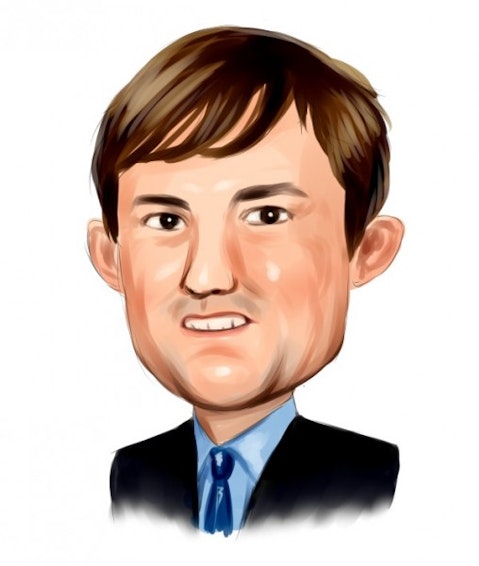Angel Martinez, CEO of Deckers Outdoor (DECK) disclosed through a Form 4 filing that he had purchased 10,000 shares of DECK through a 10b5-1 trading plan on Wednesday at an average price of $45.9034. Martinez has known which way his company’s stock was going in the past. Between May 2011 and January 2012, he sold heavily at prices ranging from $85 to $112.68. Today the stock price stands at about $47 after losing 40% so far this year and nearly 50% since his first insider sale in May 2011. The fact that Martinez is now buying back into the stock- and spending nearly half a million dollars in doing so- indicates that he believes the company’s prospects are improving and the share price is about to bounce back. There has not been much other insider activity in DECK recently- a few minor purchases totaling 2,800 shares so far this year, and no insider sales.
Some hedge funds bought aggressively into DECK in the first quarter of the year, and with the continued fall in the stock price since then investors have an opportunity to join the CEO in buying more cheaply. Two Tiger cubs- Chase Coleman at Tiger Global Management and Patrick McCormack at Tiger Consumer Management– initiated large positions in the first three months of the year. Coleman bought nearly 1.9 million shares and McCormack bought just over 500,000. In both cases these positions represent between 1.5% and 2% of their 13F portfolio, so even at higher prices these hedge fund managers thought DECK was a buy.
Deckers is the company behind several mid-to-high end consumer apparel brands with an emphasis on footware, most notably UGG and Teva. As a result of the falling stock price, the company looks quite cheap on a trailing basis with a P/E of under 10 and an enterprise value of 5.2x EBITDA. However, the company’s fundamentals have struggled recently; while revenue in the first quarter of 2012 beat Q1 2011 by about 20%, margins collapsed leading to a nearly 60% decline in net income. Income decreased in both the UGG and Teva brands, in addition to an increase in overhead costs, and these reductions in income were only partly offset by income from Deckers’s new Sanuk brand of flip-flops and sandals.
The market leader in the footwear business, Nike (NKE) holds a much larger market cap of $43 billion compared to DECK’s $1.8 billion. NKE trades at a P/E of about 20- twice that of DECK- and an EBITDA multiple of 11.2. Nike has also experienced a combination of revenue growth and margin contraction leading to a fall in net income recently, but not on as dramatic a scale as DECK. As a result Nike is only off about 5% in value so far this year. Another peer, Wolverine Worldwide (WWW), is roughly the same size as Deckers at a market cap of $2 billion but trades at multiples closer to Nike- P/E of 18, EBITDA multiple of 11.2. Like the other two companies, its revenue was up in the first quarter of 2012 compared to 2011 but its net income was down. Its stock price has generally tracked Nike’s but recently the two diverged, leaving WWW up 18% on the year. With such close peers trading at much higher multiples and insider buying as a potential bullish indicator for Deckers, investors may want to pair a long position in DECK with a short position in NKE or WWW on the theory that the valuations of the companies will converge, if they (like the company’s CEO) expect the decline in Deckers’s brands to reverse.
